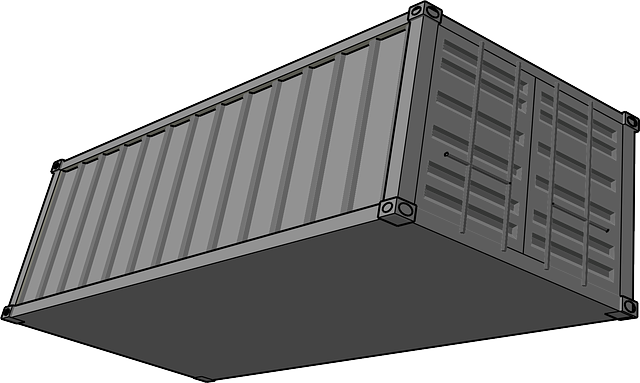Startups in insurance-adjacent industries, especially logistics, face unique challenges with cargo protection for growing fleets. Insurers play a critical role as partners, offering flexible, tailored solutions that cater to specific startup needs, including specialized cargo protection, fleet management liability coverage, and support for supply chain disruptions. By building open partnerships with insurers, startups can access customized insurance plans, mitigate risks, and foster growth in a dynamic industry, while navigating complex policies and claims processes efficiently.
In today’s competitive market, startups and fleet managers alike require robust cargo protection solutions. Fostering partnerships with startup-friendly insurers is a strategic move that empowers businesses to navigate risks effectively. This article delves into the unique needs of startups and fleets, exploring how insurers can facilitate growth through tailored cargo insurance options. We dissect strategies for building mutually beneficial partnerships, while highlighting the benefits and challenges of integrating such protections within fleet management, ultimately emphasizing the role of insurers in revolutionizing startup support.
Understanding the Needs of Startups and Fleets

Startups, by their very nature, are agile and innovative, often venturing into uncharted territories. However, they face unique challenges when it comes to insurance, especially in managing risks associated with their growing fleets, whether it’s a fleet of delivery vehicles, logistics operations, or other assets crucial for their business model. Understanding these needs is paramount for insurers aiming to offer startup-friendly options.
These young businesses require flexible and tailored solutions for cargo protection that align with their rapid growth trajectory. They seek insurance partners who can provide comprehensive coverage while offering the agility to adapt as their operations evolve. Insurers should focus on offering policies that cater to startups’ specific concerns, such as protecting valuable cargo during transit, addressing liability issues related to fleet management, and providing support for unexpected disruptions in supply chains.
The Role of Insurers in Providing Cargo Protection

Insurers play a pivotal role in providing cargo protection for fleets, offering crucial support to startups navigating the complex landscape of logistics and transportation. With the ever-present risks associated with shipping goods, insurers provide a safety net that shields businesses from potential financial losses due to cargo damage, theft, or even loss during transit. This is particularly beneficial for startups, which often have limited resources and may lack the expertise to manage these risks effectively on their own.
By partnering with insurers, startup fleets can access customized cargo protection plans tailored to their specific needs. These policies ensure that goods are insured during every stage of the supply chain, from origin to destination. Such coverage is essential for maintaining business continuity, preserving financial stability, and fostering growth in an industry characterized by hustle and bustle and constant change.
Strategies for Building Startup-Friendly Partnerships

Building startup-friendly partnerships with insurers requires a strategic approach that understands the unique needs of young businesses, particularly in high-risk sectors like trucking and logistics. One key strategy is to offer flexible and tailored insurance solutions, such as specialized cargo protection for fleets. Insurers can collaborate with startups by providing customized coverage options that align with their growth stages, ensuring they have the necessary safeguards without being burdened by unnecessary costs.
Engaging in open dialogue and active listening is another vital step. Startups often require unconventional coverage models to protect against emerging risks, such as data breaches or cyberattacks in tech-driven businesses. Insurers who actively seek feedback from these young companies can better design policies that meet their evolving needs. Additionally, establishing clear communication channels and providing accessible support systems can foster a collaborative environment, strengthening the partnership for both parties’ success.
Benefits and Challenges of Integrating Cargo Insurance for Fleet Management

Integrating cargo insurance for fleet management presents a double-edged sword, offering both significant advantages and unique challenges for startups in the logistics sector. On the one hand, cargo protection for fleets is an indispensable tool to safeguard against financial losses incurred by damaged or lost goods during transit. This coverage mitigates risks associated with unpredictable events like accidents, natural disasters, and theft, providing peace of mind and stability for businesses relying on efficient supply chain operations.
However, navigating the complexities of insurance policies and claims processes can be a hurdle for startups, especially those with limited resources. Balancing the need for comprehensive cargo protection with managing additional administrative tasks and potential cost increments requires strategic planning and expertise. Startups must carefully evaluate various insurer offerings, understanding the fine print to ensure their specific needs are met while avoiding unnecessary expenses that could impact their profit margins.
By fostering partnerships with insurers offering startup-friendly cargo protection for fleets, startups can navigate the challenges of fleet management with greater ease. These strategic alliances provide access to tailored insurance options, enhancing operational resilience and enabling focused growth. While there are benefits to integration, recognizing and addressing potential challenges is crucial for a successful and sustainable partnership model.
